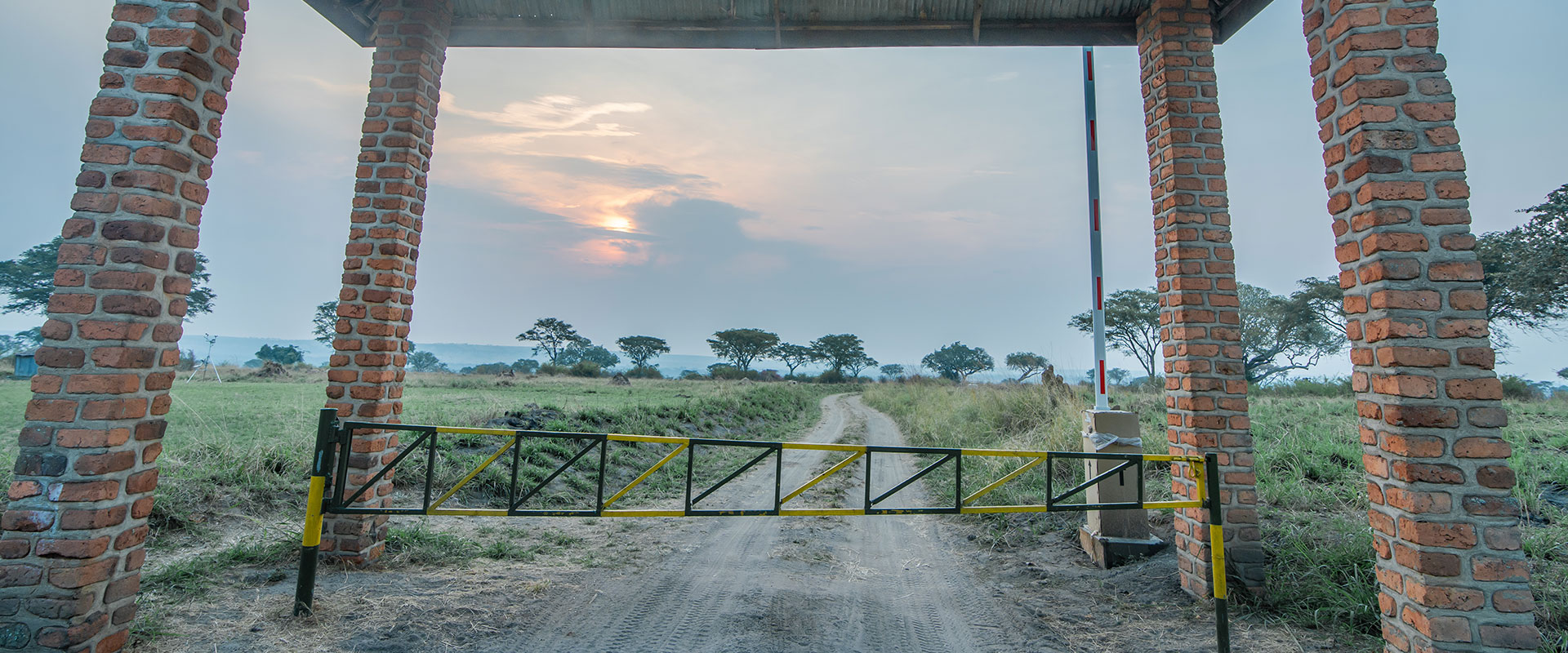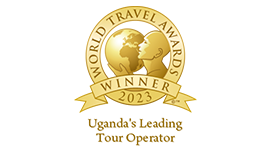UGANDA
Covid-19 & Yellow Fever
Fully vaccinated passengers are not required to present a pre-departure covid-19 test certificate and all vaccine types are accepted for entry into Uganda.
Non vaccinated or partially vaccinated passengers must have a negative COVID-19 PCR test done within 72hours before departure from the first departure point. Passenger should not show any signs and symptoms of any infectious disease before departure and any passenger that shows any signs and symptoms on arrival will be taken to an isolation center.
The COVID-19 PCR test must be taken at a laboratory approved by the Passengers’ country of departure and if the passenger tests positive for COVID-19, he/she will be taken to a COVID-19 treatment center or repatriated for treatment outside Uganda at their own expense.
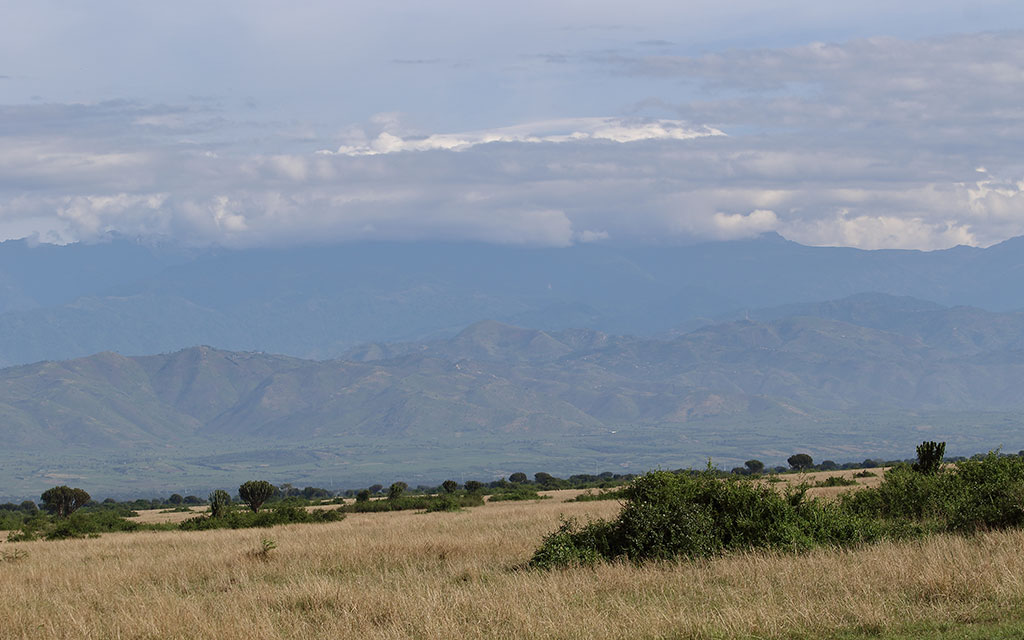
The following requirements apply to travelers leaving Uganda through Entebbe International Airport.
- All travelers except children aged 5 years and below have to present proof of complete COVID-19 vaccination and vaccinated travelers need to present a negative COVID-19 test certificate only if it’s required by the destination country or airline.
- All unvaccinated or partially vaccinated travelers must present a negative PCR test taken not more than 72hours before departure.
Note: Travelers 5years and below are not required to present a negative COVID-19 PCR test certificate on either arrival or departure whereas returning passengers are subject to random COVID-19 testing on arrival.
A yellow fever vaccination certificate which will be presented at the point of entry is a mandate for travelers to Uganda.
Visa
Visa on arrival services in Uganda are suspended for most of the countries and all travelers holding ordinary passports from countries whose citizens are required to have visas can follow http://www.visas.immigration.go.ug/ to apply for visa online from where they will receive an approved notification that they have to print and carry as travel authorization.
Visa Exempt countries include; Angola, Antigua and Barbuda, Bahamas, Barbados, Belize, Burundi, Comoros, Cuba, Cyprus, Eritrea, Fiji, Gambia, Ghana, Grenada, Ireland, Jamaica, Kenya, Lesotho, Libya, Madagascar, Malawi, Malaysia, Malta, Mauritius, Rwanda, Seychelles, Sierra Leone, Singapore, Solomon Island, St. Vincent & the Grenadines, Swaziland, Tanzania, Tonga, Trinidad & Tobago, Vanuatu, Zambia, Zimbabwe. But the COVID-19 SOPs still stand and travelers are required to have an invitation or conference letter on addition to a valid passport for at least 6months.
RWANDA
Covid-19 & Yellow Fever
All travelers arriving and transiting in Rwanda must complete the passenger locator form and upload the COVID-19 Rapid test certificate taken within 72hours before heading to the airport, see passenger locator form https://travel.rbc.gov.rw/, transiting/connecting passengers who are not leaving the airport for less than 12hours will be screened upon entry and are not required to take a second test.
Incoming travelers who are eligible for the COVID-19 vaccine are encouraged to be fully vaccinated before their travel. An additional Antigen Rapid Test (RDT) will be taken upon arrival at their own cost. Non vaccinated passengers are required to present a negative PCR test taken 72hours prior departure which is not mandatory for accompanied children under 5years.
All departing passengers at Kigali International Airport are no longer required to present a negative Rapid or PCR test.
All Rwandan travelers eligible for COVID-19 vaccination (12years and above) departing from Rwanda must be fully vaccinated implying having two doses and a booster shot administered 3months after taking the second dose.
If travelers’ test results are positive for COVID-19 while in Rwanda even when they are asymptomatic, will be treated as indicated in the National COVID-19 Management Guidelines available on https://travel.rbc.gov.rw/ until they have fully recovered at own cost.

We encourage travelers to have International Travel Insurance.
Travelers (Residents or non-residents) from yellow fever non-endemic countries will not require a yellow fever vaccination certificate whereas those (Residents or non-residents) from yellow fever endemic countries and countries with active yellow fever transmission must present a valid yellow fever vaccination certificate or are vaccinated upon arrival at a cost of USD 40. All non-residents traveling to yellow fever endemic countries should be vaccinated 10days before traveling.
Visas
From the 1st Jan 2108, Nationals of all countries receive visa on arrival at Kigali International Airport and all land borders and citizens of member countries of African Union, Commonwealth and La Francophonie get visa upon arrival and are waived visa fees for a visit of 30days, a citizen of East African Community member states shall be issued a pass/entry visa free of charge upon arrival to stay for a period of 6months.
Applicants should have a valid passport or any other acceptable travel document with a validity of at least 6months on the day of entry into Rwanda. Visas can be applied for before departure by submitting an application on https://irembo.gov.rw/rolportal/en/web/dgie/newhome and either pay online or upon arrival. Traveler may also submit application to the Rwanda Diplomatic Missions of the country of residence. Visa extension applications should be submitted to the Directorate General of Immigration and Emigration offices. Details on each class of visa are set out in the https://irembo.gov.rw/rolportal/en/web/dgie/newhome and visa extensions should be applied for whilst the initial visa remains valid.
The following countries are granted 90days valid visa free of charge upon arrival: Angola, Benin, Central African Republic, Chad, Cote d’Ivoire, Democratic Republic of Congo, Federation of Saint Christopher and Nevis, Ghana, Guinea, Indonesia, Haiti, Mauritius, Philippines, Senegal, Seychelles, Sierra Leone, Sao Tome and Principe, Singapore and the state of Qatar.
Visitors who wish to visit simultaneously the three countries (Rwanda, Kenya and Uganda) for tourism may apply for the East Africa Tourist Visa at https://irembo.gov.rw/rolportal/web/dgie/east-africa-tourist-visa upon arrival or from Rwanda Diplomatic missions in their residence and travelers should note that the East Africa Tourist Visa should be acquired through the country that is your first entry point at a cost of USD100 valid for 90days and is a multiple entry visa provided the traveler is staying within the three countries.
KENYA
COVID-19 & Yellow fever
A test is not required for passengers who are fully vaccinated against COVID-19 while passengers aged 4years and younger are exempt from holding a negative PCR test result. Un vaccinated passengers aged 5years and above including those transiting must hold a digital negative PCR test proof taken within 72hours prior to departure obtained from https://globalhaven.org/ and must be in English. Un vaccinated passengers still 5years and older will be subject to a rapid antigen test on arrival at their own expense (USD 30) and those that test positive will be subject to a second PCR test at their own expense (USD 50) and self-isolation for 5days.
Passengers with a medical condition that prevents them from being vaccinated must be in possession of a letter from a recognized medical practitioner detailing the medical reason preventing vaccination.
Passengers who have recovered from COVID-19 or received convalescent plasma in the last 90days should have a letter from a recognized practitioner showing that they have recovered from an active infection in the past 90days.
Returning unvaccinated Kenyan Nationals who have difficulty accessing vaccines in their current residence must be prepared to be vaccinated immediately on arrival. They can also register for vaccination on https://chanjo.health.go.ke/ before departure and proof of registration is required prior to arrival.
Passengers whose medical certificates have expired due to the transit time will be subject to a test for covid-19 at their own expense on arrival at a recognized facility available at Nairobi Jomo Kenyatta International Airport. Passengers may still use any of these recognized laboratories. https://africacdc.org/trusted-travel/

There is no yellow fever requirement for travelers from low risk countries but vaccination is recommended especially if the traveler is planning to visit high risk areas for example those going for a safari or those going to more rural or remote parts of the country. However, a yellow fever certificate is required for travelers aged one year and above arriving from countries with high risk of yellow fever transmission https://www.fitfortravel.nhs.uk/advice/disease-prevention-advice/yellow-fever/yellow-fever-risk-areas
Visas
As of 1st Jan 2021, travelers are required to obtain an electronic visa prior to arrival and no more visas are issued on arrival in Kenya, children under 16years of age are exempt from application and will only need to present their identity paper. Travelers are advised to apply for the Kenya e-visa 3days before arrival.
Travelers must have a passport that is valid at least 6months after the date of entry into Kenya. Visa exempt travelers by nationality include: South Africa (30 days), Bahamas, Barbados, Belize, Botswana, Brunei, Burundi, Cyprus, Dominica, Eswatini, Ethiopia, Fiji, Gambia, Ghana, Grenada, Mauritius, Solomon Islands, Jamaica, Kiribati, Lesotho, Malaysia (30 days), Malawi, Maldives, Namibia, Mozambique, Nauru, Uganda, Papua New Guinea, Rwanda, Saint Kitts and Nevis, San Marino, Saint Vincent and the G., Saint Lucia, Samoa, Seychelles, Sierra Leone, Singapore, South Sudan, Tanzania, Tonga, Trinidad and Tobago, Tuvalu, Vanuatu, Zambia, Zimbabwe.
Nationals of Afghanistan, Armenia, North Korea, Iraq, Kosovo, Lebanon, Libya, Palestine, Somalia, Syria, Tajikistan and Yemen require a referral visa.
The tourist visa into Kenya costs USD 100 for a maximum stay of 90days and USD 50 for a transit visa. All e-visas are eligible at all entry points including Lokichoggio Airport, Wajir Airport, Eldoret International Airport, Kisumu International Airport, Nairobi Wilson Airport, Jomo Kenyatta International Airport, Garissa Airport, Lamu-Manda Airport, Malindi Airport and Mombasa Moi International Airport.
TANZANIA
COVID-19 & Yellow fever
Fully vaccinated travelers will be exempt from both RT-PCR and Rapid Antigen Test requirements. Travelers will be required to present a valid vaccination certificate with QR code for verification upon arrival and the only accepted vaccines are those approved by URT and World Health Organization.
All travelers including Tanzanians, returning residents and members of the crew are required to fill an online traveler’s Health Surveillance Form available at https://afyamsafiri.moh.go.tz/ for Tanzanian Mainland.
Un vaccinated and not partially vaccinated travelers are required to present a negative COVID-19 RT-PCR or NAATs certificate with a QR code obtained within 72hours before departure. If a traveler originates from countries listed at http://www.moh.go.tz/ or points of entry will be tested for COVID-19 upon arrival using a rapid Antigen Test at their own expense of USD 10 for Tanzania Mainland. If found positive, they will be tested with RT-PCR for confirmation, allowed to self-isolate and results will be sent via email or any other means.
Un vaccinated and partially vaccinated travelers without a negative COVID-19 RT-PCR certificate in the case of air transport and International marine vessels will be tested for COVID-19 using RT-PCR test at their own expense of USD 100 for Tanzania Mainland and results will be sent to them while self-isolating. In case of International Regional and inland vessels, travelers will be tested by Rapid Antigen Test at their own expense of USD 10. Passengers found positive will be further confirmed by RT-PCR at own expense of USD 50 for Tanzania Mainland. In the case of ground crossing travelers, a Rapid Antigen Test at their own expense of USD 10 and if found positive will be handled according to Bilateral and Joint boarder agreements.
Children aged 5years and younger will be exempted from both RT-PCR and Rapid Antigen Tests requirements.

Travelers to Tanzania who are eligible for a Rapid Antigen Test are advised to pay online as a measure of avoiding unnecessary queues upon arrival through an automatically generated control number obtained after filling the online Traveler’s Health Surveillance Form. For those to Tanzania Mainland can pay using https://afyamsafiri.moh.go.tz/. The symptomatic positive Rapid Antigen travelers will be isolated for treatment at designated health facilities as per National COVID-19 Treatment Guideline.
Travelers in transit by air transport are exempt from both vaccination and COVID-19 testing requirements unless stated otherwise by the conveyance to be used or countries for their destinations.
All departing travelers are advised to seek information prior to departure from travel agents regarding COVID-19 requirements to their countries of destination.
Tanzania requires a valid yellow fever certificate from all foreign visitors and citizens over 1yesr of age traveling from an infected area or having been in transit through infected areas in the last 6days. This requirement applies for travelers from Angola, Argentina, Benin, Bolivia, Brazil, Burkina Faso, Burundi, Cameroon, Central African Republic, Chad, Colombia, Congo, Côte dʼIvoire, Democratic Republic of the Congo, Ecuador, Equatorial Guinea, Ethiopia, French Guiana, Gabon, Gambia, Ghana, Guinea, Guinea-Bissau, Guyana, Kenya, Liberia, Mali, Mauritania, Niger, Nigeria, Panama, Paraguay, Peru, Rwanda, Senegal, Sierra Leone, Sudan, South Sudan, Suriname, Togo, Trinidad (NOT Tobago), Uganda, and Venezuela.
There is a low risk of contracting yellow fever in Tanzania if you are traveling directly to Tanzania and not transiting through a country with the risk of yellow fever implying that you do not need the yellow fever vaccination certificate.
Visas
Apply for Tanzanian visa online through https://eservices.immigration.go.tz/visa/www.immigration.go.tz and fill in a form, make payments and submit your application online as you wait for visa acceptance or rejection notification that will be sent via email, applicants are advised to keep tracking the status of their visas through an online system or even visit the nearest Tanzania Embassy or consular office for interviews.
Travelers are advised to make sure they possess a valid passport with a validity period of at least 6months with no less than one unused visa page before visa application submission. Travelers are advised to select the right type of visa and upload supporting documents for that particular type of visa. Travelers are also advised to apply for visas at least 10days before their travel date and 2months for travelers whose countries fall under referral visa category.
Tanzania has up to six visa types including: ordinary (single entry visa) which costs USD 50, business visa at USD 250, multiple entry visa at USD 100, transit visa at USD 30, gratis visa, student visa which depends on the duration of stay and referral visa at USD 50.
American nationals who wish to visit Tanzania for tourism or holiday purposes must select the multiple entry visa type while applying online.
Students who wish to visit Tanzania for various academic issues for a period not exceeding 3months may be issued a student visa for USD 50 whereas those exceeding 3months will pay USD 250. Students that wish to pursue research activities will pay USD 550 and will be issued a student visa for a maximum period of 2years.
Transit visa type is strictly for travelers who intend to pass through Tanzania and cannot be used for tourism purposes.
Stateless persons and refugees who hold Vienna Convention documents are also required to obtain referral visas prior to travel to Tanzania.
The following countries’ nationals require a referral visa to travel to Tanzania. Afghanistan Azerbaijan, Bangladesh, Chad, Djibouti, Ethiopia, Eritrea, Equatorial Guinea, Nigeria, Pakistan, Kazakhstan Republic, Kyigten Republic, Lebanon, Mali, Mauritania, Niger, Palestine, Senegal, Iraq, Iran, Somalia, Sri Lanka, Somali land, Sierra Leone, Tajikistan, Turkmenistan, Uzbekistan and Syria, Yemen, Stateless persons or persons with refugee status.
The following category of countries’ nationals are visa exempt on entry into Tanzania. Antigua & Barbuda, Anguilla, Ashmore & Certie Island, Bahamas, Barbados, Bermuda, Belize, Brunei, British Virgin Island, British Indian Ocean Territory, Botswana, Cyprus, Cayman Island, Channel Island, Cocoas Island, Cook Island, Christmas Island, Dominica, Falkland Island, Gambia, Ghana, Gibraltar, Grenada, Guernsey, Guyana, Heard Island, Hong Kong, Isle of man, Jamaica, Jersey, Kenya, Kiribati, Lesotho, Malawi, Montserrat, Malaysia, Madagascar, Malta, Mauritius, Macao, Mozambique, Nauru, Naue Island, Norfolk Island, Namibia, Papua new Guinea, Rwanda, Romania, Ross Dependency, Samoa, Seychelles, Singapore, Swaziland, Solomon Island, St. Kitts&Navis, St. Lucia, St. Vincent, St. Helena, South African Republic, Trinidad & Tobago, Turks & Caicos, Tokelan, Tonga, Tuvalu, Vanuatu, Uganda, Zambia, Zimbabwe.
SOUTH AFRICA
COVID-19 & Yellow fever
All International travelers arriving to South Africa Ports of entry must be vaccinated against COVID-19.
Un vaccinated travelers must provide a valid vaccination certificate or produce a valid certificate of a negative PCR COVID-19 test recognized by the World Health Organization and obtained not more than 72hours before the date of departure or present a valid certificate of a negative Antigen COVID-19 test performed by a medical practitioner, registered public health authority or accredited/approved laboratory obtained more than 48hours before date of departure. Alternatively, a traveler may produce a valid certificate of a positive PCR COVID-19 test, recognized by the World Health Organization for a test date less than 90days prior to the date of arrival and more than 10days prior to the date of arrival together with a signed letter from a health care provider, registered in the country of origin, stating that the person has fully recovered from COVID-19, is not experiencing any new symptoms and is fit for travel.
If an International traveler is not vaccinated, he/she must undergo antigen testing for COVID-19 at the port of entry and if the traveler tests positive for COVID-19 in the antigen test, he/she will still be admitted into the Republic but if the traveler experiences symptoms of COVID-19, the traveler must isolate for 10days after admission into the Republic.
The above requirements exempt all travelers under 12years of age and daily commuters from neighboring countries.

South Africa requires a valid Yellow Fever certificate from all citizens and non-citizens above one year of age, travelers from a Yellow Fever risk country of transiting travelers exceeding 12hours through the airport of a country with the risk of Yellow Fever transmission.
Travelers from Yellow Fever risk countries without a valid Yellow Fever vaccination certificate will be refused entry or be placed under quarantine surveillance until their certificate becomes valid or for a period of not more than 6days. Travelers in possession of an exemption certificate due to medical reasons will be allowed entry on condition that they report any fever or other symptoms to health authorities and be placed under quarantine surveillance.
Visas
There are no visas issued at South African ports of entry and airline officials are obliged to insist on visas before allowing passengers to board. Immigration officials will not hesitate to send travelers without valid visas to their home countries. Visa fee may be different for different nationalities or depending on where the visa is issued from.
Any traveler wishing to travel to South Africa must ensure he/she has a valid and acceptable passport or travel document for your intended stay, at least one blank page in your passport for endorsements, a valid visa if required, sufficient funds to pay for your day-to-day expenses during your stay, a return or onward ticket, yellow fever certificates if your journey starts or entails passing through the yellow fever belt of Africa or South America.
The required documents when applying for a visa include; a passport or travel document valid for no less than 30 days after the expiry of your intended visit, your passport must have at least TWO unused page for entry / departure endorsements, a completed Form BI-84 (application for a visa), payment of the prescribed fee, a yellow-fever vaccination certificate (if required), statement and/or documentation confirming the purpose and duration of your visit, two color passport photographs, a return or onward ticket if you are travelling by air, if you have children (minors) travelling with you or joining in South Africa, you will need to provide the following additional documents, proof of guardianship or custody or, consent from the guardian in the case of an unaccompanied minor, proof of financial means to pay for your living expenses while in South Africa in the form of: bank statements, salary advances, undertakings by the host(s) in South Africa, bursary, medical cover or, cash available (including credit cards and travelers’ cheques)
Visitor’s visas are for International travelers having permanent residence outside South Africa and wish to visit the Republic on a temporary basis for either tourism or business purposes for a period of 90days or less. Here are the visa exempt countries into South Africa http://www.dha.gov.za/index.php/immigration-services/exempt-countries
Certain goods are not permitted to enter into South Africa and others on which duties need to be paid, please check http://www.sars.gov.za/ClientSegments/Customs-Excise/Travellers/Pages/Arrival-in-SA.aspx and http://www.daff.gov.za/daffweb3/Services/Imports.
DRC
COVID-19 & Yellow Fever
Vaccinated travelers ages 11 and older are required to provide proof of a negative test upon entry and/or proof of vaccination against COVID-19.DRC has not yet approved that it will accept UK’s proof of COVID-19 recovery records and the NHC appointment card from vaccination is not designed to be used as proof of vaccination.
All travelers entering DRC are subject to screening including temperature checks, travelers aged 11years and older are required to have a negative coronavirus test upon entry to DRC and/or proof of vaccination against COVID-19. The test result date must be within 48hours of departure to DRC whereas children aged 10years and younger are exempt and there is no requirement for a PCR COVID-19 test at the airport upon arrival. Un vaccinated travelers will be subject to an additional PCR test on arrival at a cost of approximately USD 45 which can be paid on arrival in cash or before departure at https://inrbcovid.com/ from where you are required to present the QR code generated on arrival, similar entry requirements apply for transiting passengers in DRC.
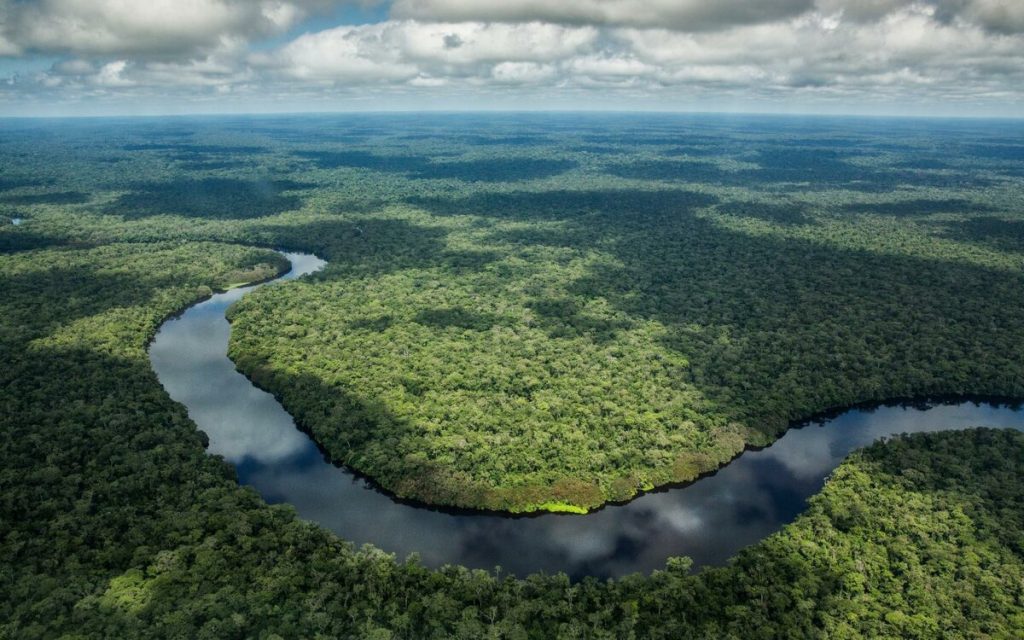
Travelers are required to provide a vaccination certificate copy for yellow fever vaccination
Visas
A traveler requires the following to apply for a visa of Democratic Republic of Congo: a valid passport for at least 6months with two consecutive blank visa pages which should also not be frayed, torn, separating or altered in any other way, last 3months taken photographs with an all-white background, fully completed visa application form, letter of invitation, proof of travel arrangements for the duration of your trip.
Visa free citizens include Benin, Burundi, Central African Republic, Cook Island, Dominica, Gambia, Haiti, Mauritius, Micronesia, Niue, Philippines, Rwanda, Senegal, Singapore, St Vincent and the Grenadines and Zimbabwe.
Visa on arrival citizens include citizens of Bangladesh, Bolivia, Burkina Faso, Cambodia, Cape Verde, Comoros, Ethiopia, Ghana, Guinea-Bissau, Iran, Kenya, Macao, Madagascar, Maldives, Mauritania, Mozambique, Nepal, Nigeria, Palau, Samoa, Seychelles, Somalia, Tanzania, Timor-Leste, Togo, Tuvalu, Uganda and Zambia.
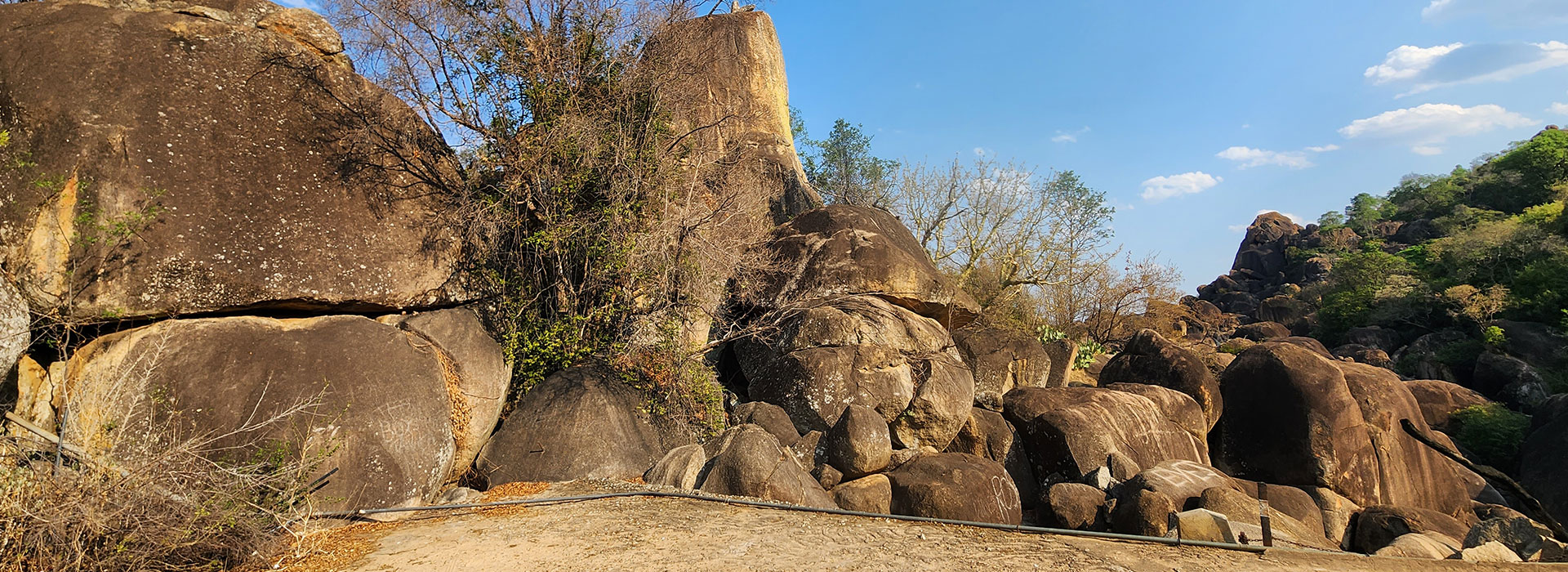


First Time On Safari ?
The best trip is the one you haven't taken yet. Let’s guide you.

